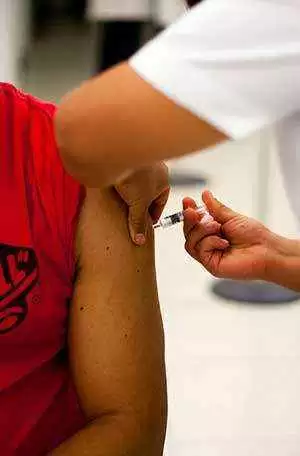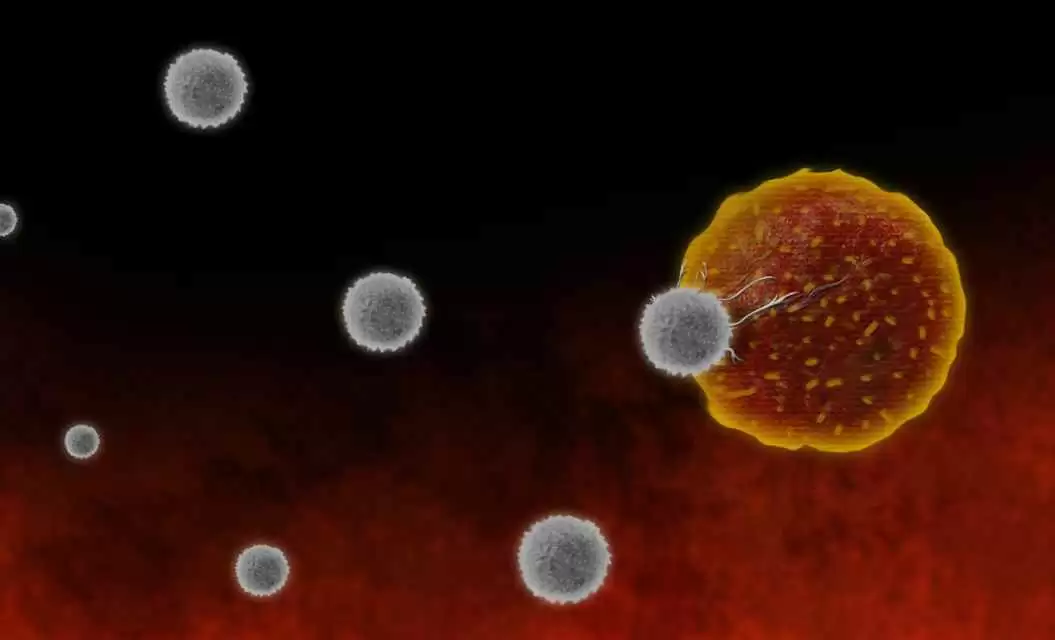
Celiac.com 10/26/2017 - Making an accurate count of intraepithelial lymphocytes (IEL) is important to making an accurate diagnosis of celiac disease, but so far, researchers have not been able to establish a definitive 'normal' IEL range. In a recent multi-center study, a team of researchers set out to do just that.
The research team included Kamran Rostami, Michael N Marsh, Matt W Johnson, Hamid Mohaghegh, Calvin Heal, Geoffrey Holmes, Arzu Ensari, David Aldulaimi, Brigitte Bancel, Gabrio Bassotti, Adrian Bateman, Gabriel Becheanu, Anna Bozzola, Antonio Carroccio, Carlo Catassi, Carolina Ciacci, Alexandra Ciobanu, Mihai Danciu, Mohammad H Derakhshan, Luca Elli, Stefano Ferrero, Michelangelo Fiorentino, Marilena Fiorino, Azita Ganji, Kamran Ghaffarzadehgan, James J Going, Sauid Ishaq, Alessandra Mandolesi, Sherly Mathews, Roxana Maxim, Chris J Mulde, Andra Neefjes-Borst, Marie Robert, Ilaria Russo, Mohammad Rostami-Nejad, Angelo Sidoni, Masoud Sotoudeh, Vincenzo Villanacci, Umberto Volta, Mohammad R Zali, Amitabh Srivastava.
Celiac.com Sponsor (A12):
They are variously affiliated with the twenty-eight institutions listed below. The study was designed at the International Meeting on Digestive Pathology, Bucharest 2015.
Investigators from 19 centers in eight countries on three continents, recruited 198 patients with Marsh III histology, and another 203 control subjects. They used a single agreed upon protocol to count IEL/100 enterocytes in well-oriented duodenal biopsies. They also collected demographic and serological data.
The research team used receiver operating characteristic (ROC) curve analysis to determine the optimal cut-off between normal and celiac disease (Marsh III lesion) duodenal mucosa, based on IEL counts on >400 mucosal biopsy specimens. The average ages of celiac and control groups were 45.5 and 38.3 years, respectively.
They found that mean IEL count was 54±18/100 enterocytes in celiac disease and 13±8 in normal controls (p=0.0001). ROC analysis indicated an optimal cut-off point of 25 IEL/100 enterocytes, with 99% sensitivity, 92% specificity and 99.5% area under the curve. Other cut-offs between 20 and 40 IEL were less discriminatory.
Additionally, there was a sufficiently high number of biopsies to explore IEL counts across the sub-classification of the Marsh III lesion.
Their ROC curve analyses show that a cut-off of 25 IEL/100 enterocytes for Marsh III lesions provides the best way to distinguish between normal control and celiac disease biopsies. They saw no differences in IEL counts between Marsh III a, b and c lesions.
There was an indication of a continuously graded dose–response by IEL to environmental gluten antigenic influence.
Source:
Affiliations:
The team members for this study are affiliated with the Department of Gastroenterology and Pathology, Milton Keynes University Hospital, Milton Keynes, UK; the Department of Gastroenterology, Luton and Dunstable University Hospital, Luton, UK; the Wolfson College, University of Oxford, Oxford, UK; the Gastroenterology and Liver Diseases Research Centre, Research Institute for Gastroenterology and Liver Diseases, Shahid Beheshti University of Medical Sciences, Tehran, The Islamic Republic of Iran; the Centre for Biostatistics, Faculty of Biology, Academic Health Science Centre, University of Manchester, Manchester, UK; the Department of Gastroenterology, Royal Derby Hospital, Derby, UK; the Department of Pathology, Ankara University Medical School, Ankara, Turkey; the Department of Gastroenterology, Warwick Hospital, Warwick, UK; the Service de Pathologie, Centre de Biologie et Pathologie Groupe Hospitalier du Nord, Hospices Civils de Lyon, Lyon, France; University of Perugia Medical School, Perugia, Italy; the Department of Cellular Pathology, University Hospital Southampton NHS Foundation Trust, Southampton, UK; Department of Pathology, Carol Davila University of Medicine and Pharmacy, Bucharest, Romania; Institute of Pathology Spedali Civili, Brescia, Italy; Internal Medicine and Pathology Unit, University of Palermo, Giovanni Paolo II Hospital, Sciacca, Italy; Department of Pediatrics and Surgical Pathology, Università Politecnica delle Marche, Ancona, Italy; Department of Medicine and Surgery, Scuola Medica Salernitana, University of Salerno, Salerno, Italy; Departments of Gastroenterology and Pathology, Grigore T. Popa University of Medicine and Pharmacy, Iasi, Romania; College of Medical, Veterinary and Life Sciences, University of Glasgow, Glasgow, UK; Digestive Disease Research Center, Tehran University Medical Science, Tehran, Iran; Center for Prevention and Diagnosis of Coeliac Disease and Pathology Unit, Fondazione IRCCS Ca' granda Ospedale Maggiore Policlinico, Milano, Italy; Department of Medical and Surgical Sciences, University of Bologna and Diagnostic and Experimental, University of Bologna, Bologna, Italy; Gastroenterology and Hepatology, Faculty of Medicine, Mashhad University 0f Medical Sciences, Mashhad, Iran; Pathology department, Razavi hospital, Mashhad, Iran; Department of Pathology, Southern General Hospital, Lanarkshire, UK; Department of Hepatogastroenterology and Pathology, Free University Medical Centre, Amsterdam, The Netherlands; Department of Pathology and Medicine, Yale University School of Medicine, New Haven, USA; Digestive Disease Research Center, Tehran University Medical Science, Tehran, Iran; Department of Pathology, Brigham & Women's Hospital, Boston, USA.







Recommended Comments
There are no comments to display.
Create an account or sign in to comment
You need to be a member in order to leave a comment
Create an account
Sign up for a new account in our community. It's easy!
Register a new accountSign in
Already have an account? Sign in here.
Sign In Now